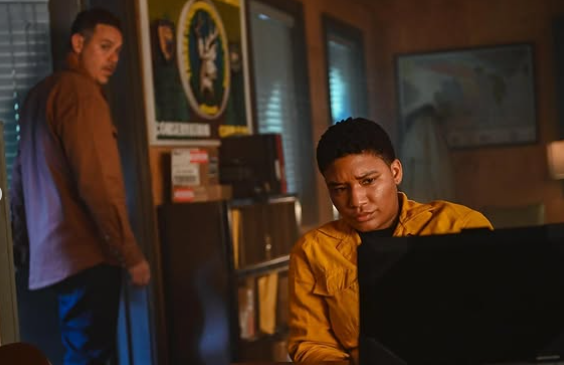
While Fire Country thrills audiences with its action-packed wildfire scenes and tense rescue missions, it also stands out as a thoughtful exploration of redemption, justice, and the possibility of second chances. The series’ premise — inmates fighting wildfires as part of a rehabilitation program — provides a unique and powerful lens through which to examine how society views punishment, forgiveness, and personal transformation.
At the heart of this narrative is the character Bode Donovan, whose complex journey illustrates the painful, non-linear path toward redemption. Bode’s story is not just about battling external fires; it is about confronting the inner inferno of guilt, shame, and regret. His struggle to reconcile with his past mistakes — and the desire to prove he is more than his criminal record — captures the emotional weight carried by many people trying to rebuild their lives after incarceration.
The show does not shy away from the difficult truths surrounding inmate firefighter programs. It acknowledges the skepticism from the public and some of the firefighting community, who question whether individuals with criminal histories can truly be trusted in high-responsibility roles. Through Bode and his fellow inmate firefighters, Fire Country humanizes this debate, showing the courage, discipline, and commitment required to succeed in such dangerous work.
Importantly, the series treats redemption not as a magical cure, but as an ongoing process. Characters grapple with setbacks, prejudice, and internal conflicts that threaten to derail their progress. The inmate firefighters’ work is portrayed as much more than a job — it is a form of penance, a chance to reclaim dignity, and a pathway toward healing fractured identities.

Fire Country also uses this narrative to illuminate the broader issue of criminal justice reform. Inmate firefighter programs, which have been implemented in various states, have shown promising results in reducing recidivism and providing participants with vocational skills and purpose. The show educates viewers about these programs’ realities, challenges, and successes, fostering greater understanding and empathy.
Moreover, the series engages with themes of forgiveness — both from others and from oneself. Characters struggle with accepting their pasts and seeking forgiveness from those they have hurt. This personal dimension adds emotional depth and realism, moving beyond simple redemption arcs into profound psychological territory.
The inclusion of strong, nuanced leadership figures, like Sharon Leone and Manny Perez, further enriches this theme. Their support and belief in the inmate firefighters’ potential highlight the importance of trust and mentorship in rehabilitation.
By weaving these themes into an action drama, Fire Country challenges viewers to reconsider their assumptions about justice, punishment, and the human capacity for change. It makes a compelling case that redemption is not about erasing the past but about the hard work of building a better future.
In today’s society, where discussions about mass incarceration and criminal justice reform are more urgent than ever, Fire Country offers a timely and hopeful perspective. It advocates for a justice system that allows for restoration and growth, not just punishment.
Through its gripping storytelling and well-drawn characters, Fire Country delivers a powerful message: no one is beyond saving, and everyone deserves the chance to rise from the ashes.
